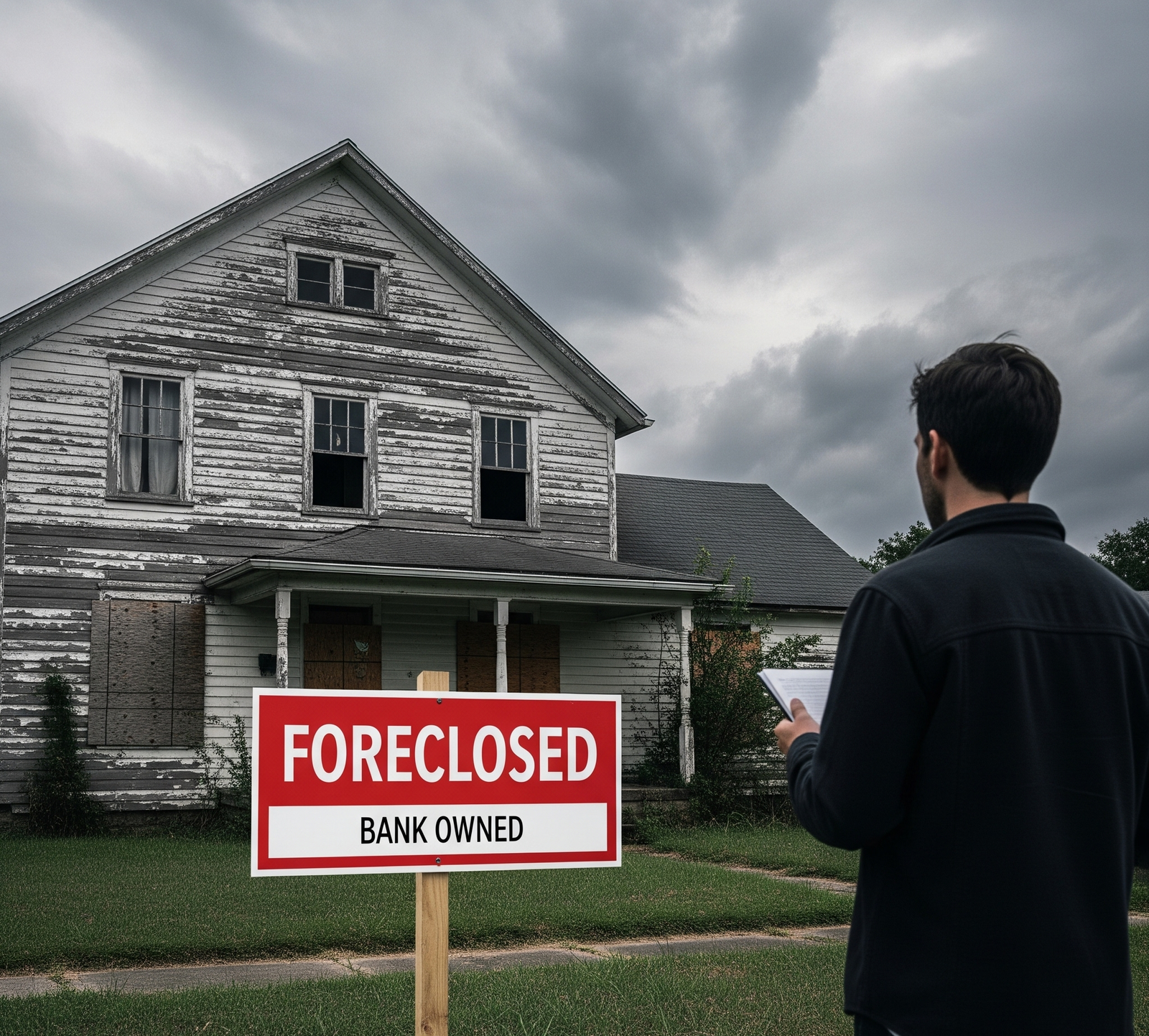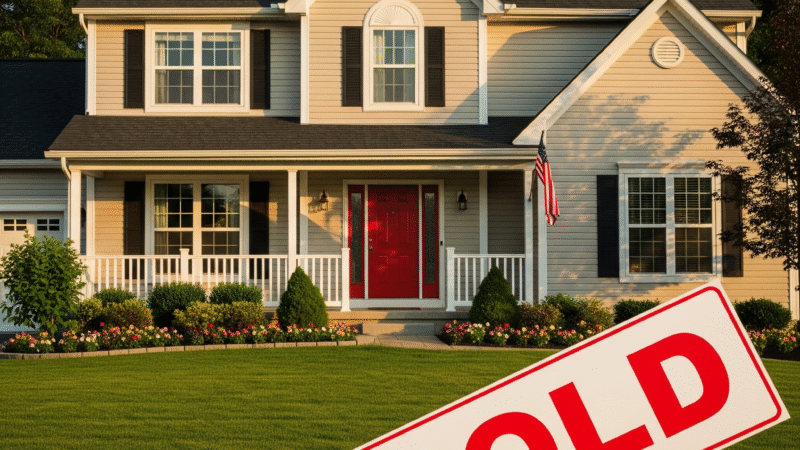Foreclosed Homes: 5 Costly Mistakes to Avoid When Buying

Imagine walking through a neighborhood and spotting a beautiful house at a super low price. You think, “This could be my chance to own a home!” Buying foreclosed homes—houses taken back by banks because the owner couldn’t pay the loan—can feel like a dream come true.
But sometimes, that dream turns into a headache. My friend Anna went through this. She thought she’d found the perfect house, but ended up spending way more than planned because of problems she didn’t see coming. I don’t want that to happen to you. Let’s sit down, like we’re sharing a coffee, and talk about five big mistakes that can cost you a lot when buying a foreclosed home. I’ll explain it all simply, with real examples, so you feel ready.
Why Buying a Foreclosed Home Isn’t So Simple
Foreclosed homes are different from regular houses. They can be cheaper, but they come with surprises. Maybe you’re wondering, “How do I find foreclosed homes near me?” or “What’s the truth about buying a foreclosed home?” Don’t worry, I’ve got you covered. These homes are sold by banks, and that changes the rules. If you’re not careful, you could end up with more trouble than you bargained for. Let’s go over the five mistakes you need to avoid to make a smart deal.
Mistake 1: Not Researching the House
Buying a house without knowing its full story is like picking up a wrapped gift without knowing what’s inside. It might be great… or a total mess. With foreclosed homes, you have to dig deep before signing anything.
Why This Matters
Every house has a past. It might have unpaid taxes, old debts, or even legal issues. Anna didn’t check this properly and bought a house with an extra debt she had to pay off herself. Researching keeps you safe from these surprises.
How to Do It Right
- Check the paperwork: Use foreclosure listings or ask for help to look at public records.
- Ask around: A real estate agent who knows how to buy foreclosed homes can tell you what to watch out for.
- Visit the area: Drive by the neighborhood to get a feel for it. Are there lots of foreclosed homes near me? That might tell you something about the place.
Mistake 2: Not Inspecting the House
Would you buy a car without taking it for a test drive? Of course not! It’s the same with foreclosed homes. They’re sold “as is,” meaning if something’s broken, it’s your problem. Anna thought her house just needed a new coat of paint, but the plumbing was a disaster. She spent a ton to fix it.
Why Checking Everything Makes a Difference
- Hidden issues: Only an expert can spot things like bad wiring or a leaky roof.
- Save money: Fixing things now is cheaper than after you move in.
- Peace of mind: Knowing the house is solid makes you feel better about living there.
How to Avoid This
- Hire an inspector: Pay someone to check the house carefully. It’s worth every penny.
- Look closely: If the paint’s peeling or there’s a weird smell, it could mean bigger problems.
- Take your time: If it seems too good to be true, check again.
Mistake 3: Not Understanding the Process
Buying a foreclosed home isn’t like buying a regular house. There are more steps and risks. If you don’t know how it works, you could get stuck. Anna didn’t realize the bank might still need to remove the previous owners after she bought the house. She had to deal with lawyers and got super stressed.
Why Knowing the Process Is Key
- Different rules: Banks sell these homes their way, and you can’t always negotiate much.
- Extra paperwork: There might be legal documents or even court stuff involved.
- Timing: It can take longer than you expect.
How to Get Ready
- Learn a bit: Look up how buy foreclosed homes works in your area.
- Get help: A lawyer who knows this stuff can explain it clearly.
- Be prepared: Have your money and papers ready so you don’t miss out.
Mistake 4: Paying More Than It’s Worth
Just because a house is foreclosed doesn’t mean it’s a steal. Sometimes people get excited and pay too much. Anna fell for this. She didn’t check the prices of other homes nearby and paid more than she should have. If she’d compared, she could’ve saved thousands.
Why Price Matters
- Know the value: Check what similar houses in the area are worth.
- Don’t rush: A low price today might not be the best deal tomorrow.
- Think ahead: A cheap house now could cost a lot to fix later.
How to Avoid Overpaying
- Compare prices: Use sites like Zillow to see other foreclosed homes.
- Talk to an expert: A real estate agent can tell you if the price is fair.
- Set a budget: Know how much you can spend and stick to it.
Mistake 5: Not Having a Plan for the House
Buying a house is just the start. You need to decide: will you live in it? Rent it out? Fix it up to sell? Anna didn’t think this through and ended up with a house she couldn’t afford to keep. She had to sell it quickly and lost money.
Why Planning Is Everything
- Know your goal: Is it your home or a way to make money?
- Count the costs: Houses need repairs, taxes, and other expenses.
- Look forward: Your life might change, and the house should fit that.
How to Plan Smart
- Write it down: List what you want and how much you can spend.
- Talk it out: Ask friends who own homes for their advice.
- Stay flexible: If things change, be ready to adjust your plan.
Conclusion: Your Dream Home Awaits
Buying a foreclosed home can be an amazing way to save money, but it’s not a walk in the park. By avoiding these five mistakes—not researching, skipping inspections, misunderstanding the process, overpaying, and lacking a plan—you’ll be set for a smart deal. It’s like planning a road trip: the more you prepare, the smoother it goes. You’re not alone in this. Plenty of people have done it successfully. Take a deep breath, do your homework, and soon you’ll be unlocking the door to your new home, feeling proud and worry-free.
Quick Tips to Keep in Mind
- Research the house’s history before buying.
- Inspect the house with an expert to spot issues.
- Learn how the foreclosed homes buying process works.
- Check if the price is fair by comparing other homes.
- Plan what you’ll do with the house after buying it.


